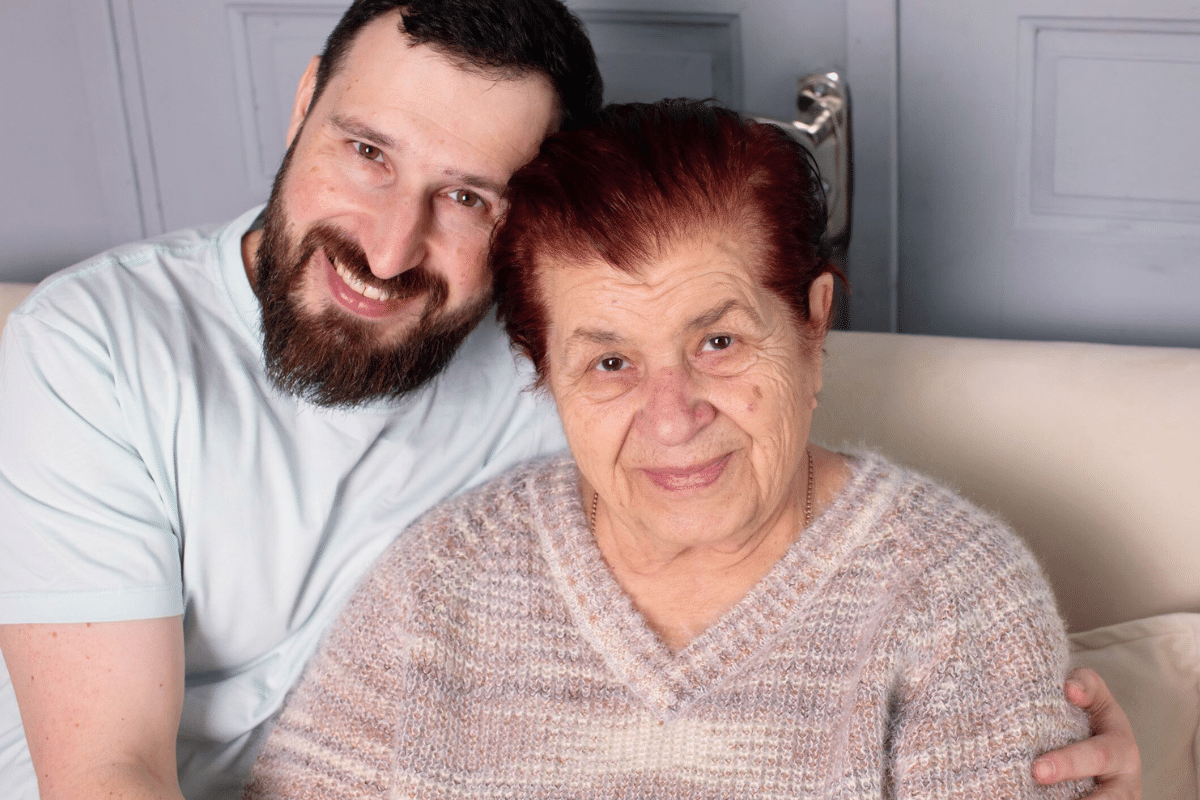Aging in place continues to increase in popularity. However, what to do when you notice an…
Every November, the world takes a moment to recognize and appreciate the silent strength of family caregivers. National Family Caregiving Month is more than just a calendar highlight; it’s an opportunity to spotlight the challenges and triumphs faced by those who dedicate their lives to caring for loved ones.
What is National Family Caregiving Month?
 National Family Caregiving Month is an observance dedicated to acknowledging the invaluable contributions of family caregivers across the nation. The origins date back to 1994, when the Caregiver Action Network initiated a week-long celebration. Over the years, it has evolved into a month-long recognition, a time to raise awareness about the emotional, physical, and financial challenges caregivers face daily.
National Family Caregiving Month is an observance dedicated to acknowledging the invaluable contributions of family caregivers across the nation. The origins date back to 1994, when the Caregiver Action Network initiated a week-long celebration. Over the years, it has evolved into a month-long recognition, a time to raise awareness about the emotional, physical, and financial challenges caregivers face daily.
What are the Benefits of Having a Family Caregiver?
One of the most significant advantages of having a family caregiver is the emotional bond between the caregiver and the care recipient. They possess a unique understanding of their preferences, routines, and medical history, which enables them to provide personalized and attentive care. This personalized care can lead to better health outcomes and a higher quality of life for the care recipient.
Another advantage of having a family caregiver is the potential cost savings. Professional caregiving services can be expensive, and many families may struggle to afford them. By assuming the role of a caregiver, family members can mitigate the financial burden associated with hiring external help.
How Do You Become a Family Caregiver?
Becoming a family caregiver is often a role that evolves naturally out of necessity or personal choice. It starts with recognizing the specific needs of the person requiring care. This involves evaluating their physical, emotional, and medical requirements to determine the level of support they need. It’s essential to have open and honest communication with the care recipient and other family members to ensure everyone is on the same page.
Once you’ve assessed the needs and communicated with your family, it’s time to seek out resources and support systems available to caregivers. Many organizations offer training programs, support groups, and educational materials designed to equip family caregivers with the necessary skills. Remember, you don’t have to do it alone; there are resources and networks ready to assist you in your caregiving journey.
How Do You Prevent Family Caregiver Burnout?
Preventing caregiver burnout is crucial for maintaining both the caregiver’s and care recipient’s well-being.
CREATE A PLAN – Creating a realistic caregiving plan is essential for preventing burnout. This involves setting clear goals, establishing routines, and organizing tasks effectively. By implementing a structured plan, caregivers can better manage their time and energy.
SET BOUNDARIES – It’s essential for caregivers to recognize their limits and ensure they carve out time for themselves. This can include engaging in activities that bring joy, relaxation, and stress relief, such as exercise, hobbies, or spending time with friends.
SEEK SUPPORT – Caregiving can be isolating, but connecting with fellow caregivers through support groups or online communities can provide a sense of camaraderie and understanding. Don’t hesitate to reach out to friends and family for help! Delegating tasks and sharing responsibilities can alleviate some of the caregiving burden.
Additionally, consider enlisting respite care services, which provide temporary relief by offering professional assistance, allowing caregivers to take breaks and recharge.
What are the Resources Available for Family Caregivers?
Fortunately, there are numerous resources available to support family caregivers. One such resource is caregiver support groups, either in-person or online, where caregivers can connect with others in a safe space who understand their experiences.
Additionally, government and nonprofit organizations offer a range of services, training, and financial assistance to help caregivers better manage their responsibilities. Local community centers and healthcare institutions may also offer workshops, seminars, and educational materials to enhance caregiving skills.
National Family Caregiving Month is a time to honor and support the incredible contributions of family caregivers. Whether you’re already a caregiver or considering taking on the role, remember that you are not alone.




Comments (0)